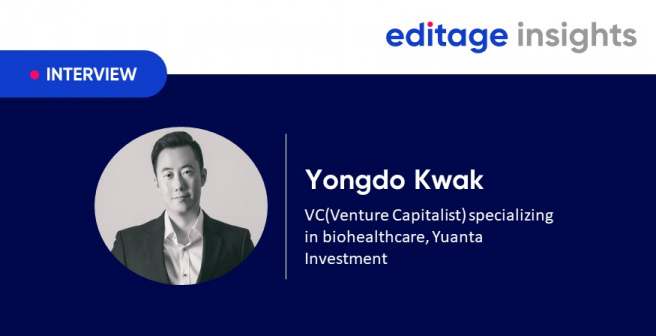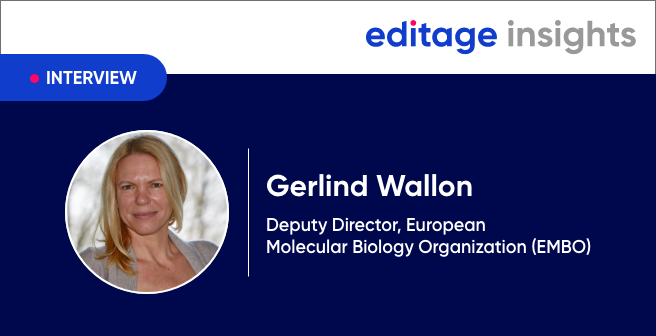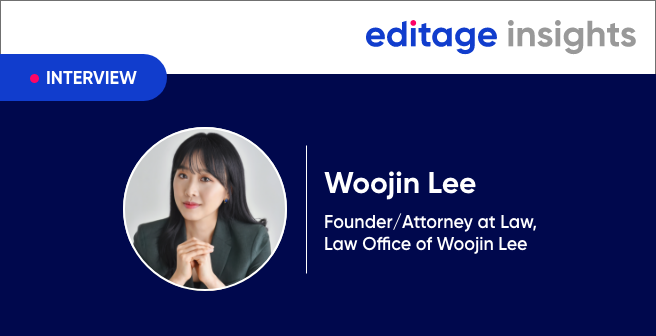How logical thinking and single-minded focus to find solutions can help researchers be successful

You know you are talking to a passionate researcher when he says, “My dream has always been to develop a cost-effective vaccine and therapeutic agents to help prevent and cure HIV/AIDS.” Professor Linqi Zhang – Chair, Department of Basic Medical Sciences and Comprehensive Aids Research Center at Tsinghua University, China – is very passionate about HIV/AIDS research. In his current role, Professor Zhang also supervises doctoral students and functions as the standing deputy director. Prior to joining Tsinghua University, Professor Zhang worked as Associate Professor and researcher at the Aaron Diamond AIDS Research Center at The Rockefeller University. In the course of a successful academic career, he has worked alongside internationally renowned AIDS research scientists like Professor David Ho. He also became a distinguished professor of the Chang Jiang Scholars Program organized by the Chinese Ministry of Education. He was also the principal scientist in China’s National Basic Research Program (also known as the 973 Program) for research on the response mechanism of human immunodeficiency virus biology and immunology.
Professor Zhang has received eight research grants from the National Institutes of Health; is on the editorial board and review committee of many internationally renowned scientific journals; and is an expert advisor to international organizations such as World Health Organization, International AIDS Vaccine Initiative, South African AIDS Vaccine Initiative, and the Clinton Foundation. Professor Zhang earned a PhD in Molecular Genetics from the University of Edinburgh.
Professor Zhang, after completing your PhD at the University of Edinburgh, you went on to build an academic career in globally renowned institutions outside China. And in 2008, you returned to China to pursue an academic career. Did you have problems acclimatizing after your return?
To be honest, after my return to China, I did have initial problems acclimatizing. I also doubted my own decision to return but I think it was a natural reaction to the drastic change. However, I have realized that every society or organization has systems that work and every system has its weaknesses. To be able to experience its evolution and maturity is a great opportunity and that is exactly what I experienced after my return. I did struggle with the drastic change in academic setting and educational systems. But I think that existing gaps in any system, an academic system for example, indicate that there is room for development, and this in turn provides opportunities for people with different kinds of talent. So while the initial days after my return were challenging, I realize that I have learned a lot as a researcher and academician.
You have published in prestigious journals like The New England Journal of Medicine, Nature, The Lancet, Science, The Journal of Biological Chemistry, and The Journal of Experimental Medicine. Your name is also included among authors whose SCI articles are cited most frequently. These are goals that most Chinese researchers and authors strive to attain, and you have achieved these at an early stage in your career. Do international journals often invite you for contributions?
Some researchers believe that connection with a journal or good reputation can guarantee publication. This is a misconception. Researchers are rarely invited to write original medical research articles, except commentaries, perspectives, or opinion pieces. Original research articles cannot be written upon invitation. It is impossible to design a research specifically for publishing an article in response to a journal’s invitation. Besides, established, high-quality journals don’t offer authors any assurance of publication. Even when they may invite experts in a field to write an article, they don’t guarantee publication. They contact the experts first, and the experts are expected to submit articles when their research is complete. If the manuscripts clear the peer review process, they will be publisshed. The process is the same everywhere and applies to everyone irrespective of reputation or seniority.
While working on a research a topic/question, do you start with a target journal in mind? Or, do you select the journal for submission after you have completed your research and written the article?
I don’t perform research based on a journal. Even though journal publishing is necessary, the research is of prime importance. I start looking for a suitable target journal after my research is complete. I expect that, to a large extent, the research findings will be a deciding factor. So, the most appropriate time to select a journal for submission is after the research is complete.
In my opinion, Chinese scholars do not focus enough on literature reading. Could you tell our readers how you go about reading relevant literature in your field? Do you use specific tools to effectively manage your time and reading habits?
Research cannot be performed in a vacuum. It is essential for researchers to stay updated about the latest and most significant developments in their field. And the best way to stay updated is to read published literature. I benefit greatly by reading the journals in my field and I subscribe to new content alerts from all the journals I prefer reading. This, I feel, is a good starting point.
But your schedule also keeps you busy – you perform research, teach, supervise, and even travel to attend international events. How much time do you spend on reading literature?
I spend at least one-fifth of my each day reading literature. Over time, I have come to identify research publishing trends across journals and can now understand the editorial policies of the journals I read. I have also realized that journal editors’ decisions are based on what they feel will work best in the field (and not based on any personal preferences). So they largely choose to publish topics that are widely discussed by experts in the field or are worthy of attention. Thus, persistently and regularly reading published literature in our field, will increase our awareness of various scientific discoveries and breakthroughs. Based on this, we will also understand what different journals prefer and this can help us plan a publication strategy.
Several new publishing models have made an appearance on the international scientific publishing landscape, e.g., open access or open post-publication peer review. What do you think about these developments? Do you encourage your students to try out alternative publishing models? Or do ask them to publish the conventional way?
Personally, I find conventional publishing and established journals more credible. Many of them have a long history and so, to a certain extent, they represent good quality. Let’s take a non-academic, but significant, example: those who can afford it prefer German-made luxury cars, not because they want to flaunt an expensive car but because these established brands represent attention to details and quality assurance. Similarly, I think that most scientists subconsciously place greater trust in established journals that have a long history and rich culture. But this does not mean that newer publishing models are not reliable. The focus should always be on quality. If new publishing models show good results, researchers should adopt and support them.
With the advancement of digitization, newer media platforms now allow researchers to communicate and exchange discoveries. For example, an increasing number of scientists are using We Media. Some feel that scientists of the new generation should be more involved in alternative communication platforms. Apart from conducting experiments in the lab and writing reports, scientists should learn self-marketing and promotion. Do you agree with this view?
The answer to this is fairly simple. Let me explain this using the analogy of homophony in an orchestra. The finely tuned ear can listen to the orchestra and identify the disparate sounds simultaneously. In a research scenario, as long as you can tell the homophony apart and sort out your priorities at work, you will be able to focused and achieve success as a scientist. After all, scientific discoveries and achievements are the homophony. If we don’t excel in this aspect, even the best alternative communication platforms cannot help us. Here’s another analogy to summarize my point: significant achievements in scientific research will make you a leader in the field, but if you spend more time talking about your work rather than increasing your knowledge by performing research, you will always be a follower, irrespective of how popular you become. The difference is easy to tell.
A renowned Chinese scholar, Professor Yigong Shi, remarked that being a scientist requires intense concentration and scientists should not focus on too many things at once. What do you think about his view?
I absolutely agree with Professor Shi’s view. You have to get used to a regular schedule and monotony to become a scientist. Apart from sleeping, our life usually revolves around working at the lab, attending seminars, and writing papers. This lifestyle doesn’t change for decades. You repeat the same technical procedures repeatedly and remain focused. In this process, you may discover something. If you are involved in too many things and your attention is divided, it is highly unlikely that you will achieve much in scientific research.
I have always considered scientists as a special group of people. The way regular people think when they tackle a difficult situation is by simplifying it. When they encounter a mountain too high, they will take a detour. However, scientists think differently. They like to look for trouble or problems that they can solve. When there is a problem people can’t solve, researchers and scientists will find the solution no matter how long that takes. I think scientists are persistent, even stubborn. And it is this single-mindedness that helps them concentrate on solving problems. Recently, I read the book Thinking, Fast and Slow by Nobel Laureate Daniel Kahneman, which talks about the different ways in which people think and approach situations in life. It’s a very interesting read and I recommend it to readers of Editage Insights.
In recent years, the impact factor has become a hot topic of debate, with scientists rallying in support of it and those opposing its use in the scientific research evaluation system. You have interacted and worked with many scholars from different parts of the world. What is their opinion of the impact factor? How important do they think it is?
From my experience as a researcher and through my interactions with scientists here, in China, and abroad, I have realized that the impact factor has considerable influence everywhere. Most researchers across the world still consider the impact factor of the target journal when trying to get articles published. The belief is that the higher a journal’s impact factor, the better it is. It is true, though, that comparatively, the reliance on the impact factor is higher in China as compared to other countries. In other countries, when it comes to thinking about academic progression, the impact factors of journals in the same field where researchers have published are taken into consideration. Overall, I think that when choosing a target journal, it is more important for you, as a researcher, to ensure that the journal publishes articles in the same field, that your paper matches the aims and scope of the journal, and that the journal is widely read by researchers in your field. These factors are more important than impact factor or other superficial metrics.
Do you have any suggestions or advice for our readers and authors who are looking to get their articles published?
Sure! Remember that logical thinking is very important in science, especially in the life sciences. When working abroad, I discovered that young students, even those in junior high school, were asked to create hypotheses of their own and test them. I was stunned by the progressive approach to inculcate the scientific way of thinking in students at an early age. I think that the Chinese education system lags behind in this approach to encourage logical and analytical thinking. Logical thinking training can have significant impact on overall decision making, behavior, and approach to problem solving – all of which help in scientific research.
Could you talk about your experience in training graduate students?
As I mentioned earlier, scientists have a unique approach; they like to look for trouble. But from another perspective, scientists also need to constantly think critically and challenge their own conclusions. I noticed that in many western countries, the education system lays stress on critical thinking. Students have the right to challenge and criticize their supervisors. I fully support this kind of thinking and education and also try to train my students in this manner. I assign different tasks to my students at weekly seminars. Some share their thoughts on the literature they read. Some present the research process they followed during the week. We all give our opinions. And in doing so, we think critically. I train my students to get used to criticism and challenges from their peers. Eventually, they will gain confidence and pay more attentive to detail to make sure that they are able to present a strong argument supporting their approach. I am happy to say that my students are confident and composed when making presentations or answering questions at international conferences.
Thank you for the wonderful insights, Dr. Zhang!
(This interview was conducted by Deborah Yang.)



